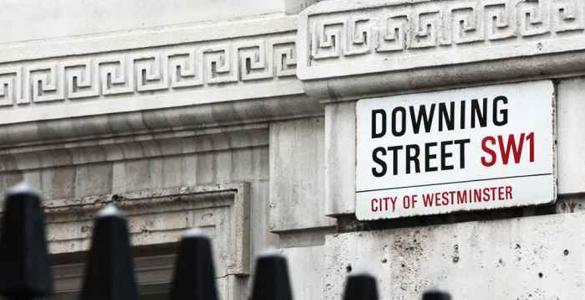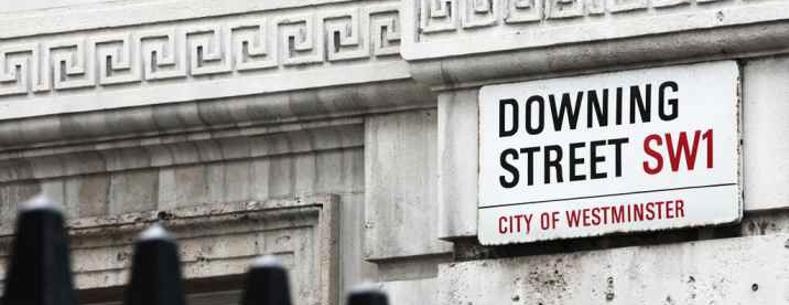On 7 November, King Charles set out the UK Government’s legislative programme for the next parliamentary session. The Secretary of State for Wales listed 15 out of the 21 Bills which extend and apply to Wales. According to the Sewel Convention, the UK Parliament does not normally legislate on devolved issues without Senedd consent. The Counsel General, Mick Antoniw MS highlights "varying forms of engagement" with the UK Government on the programme, but drew attention to Acts passed without consent in the last parliamentary session.
Six Bills have been carried over from the last parliamentary session, with legislative consent memoranda laid in the Senedd on the:
- Data Protection and Digital Information (No.2) Bill;
- Economic Activity of Public Bodies (Overseas Matters) Bill; and
- Victims and Prisoners Bill.
In this article we take a look at the Bills the UK Government intends to introduce over the coming year, and what we know so far.
The Criminal Justice Bill introduces measures like mandating offenders to attend sentence hearings and expanding police powers to tackle modern threats. It introduces the mandatory reporting of child sexual exploitation, which intersects with devolved powers around child protection and preventing sexual abuse.
The Sentencing Bill mandates courts to impose whole life orders for the most dangerous criminals, while suspended sentences will be favoured if people are sentenced to 12 months or less. The Victims and Prisoners Bill introduces an Independent Public Advocate for victims of major incidents. The Bill’s provisions also allow for the Secretary of State to review and veto release decisions made by the Parole Board regarding the most serious offenders.
The Investigatory Powers (Amendment) Bill and Terrorism (Protection of Premises) Bill will aim to address evolving threats and protect the public. The former amends the Investigatory Powers Act 2016 to ensure it remains fit for purpose, while the latter will improve protective security by requiring those responsible for certain premises to consider the terrorist risk.
The Arbitration Bill would modernise the law on arbitration as recommended by the Law Commission of England and Wales.
The UK Government says the Offshore Petroleum Licensing Bill aims to safeguard domestic energy supply. It requires the North Sea Transition Authority to run an annual process for new production licences in UK offshore waters. Licences would be issued after a bid meets two key tests:
- Whether the UK is projected to remain a net importer of oil and gas; and
- The carbon emissions associated with the production of UK gas must be lower than the average of equivalent emissions from imported liquefied natural gas.
The Animal Welfare (Livestock Exports) Bill will ban the live export of cattle, sheep, goats, pigs and horses. It will ensure that animals are slaughtered domestically to prevent live export.
The Digital Markets, Competition and Consumers Bill aims to improve market competition and further consumer protections by extending the powers of the Competition and Markets Authority. It introduces a regulatory regime aimed at digital markets. The Data Protection and Digital Information (No.2) Bill aims to create a new data rights regime to replace the EU GDPR system. The First Minister provided a single response to two Senedd committees who reported on the Bill’s Legislative Consent Memorandums (LCMs). The Welsh Government recommended in its supplementary LCM consent be granted for some clauses but not others until further discussions were held with the UK Government.
The Automated Vehicles Bill provides a legal framework for self-driving vehicles to ensure high standards of safety and clear legal liability.
The Renters (Reform) Bill makes several changes to the regime for private renters in England, including ending no-fault evictions, addressing ‘no DSS’ discrimination, and creating a national landlord register. While the Bill does not currently apply to Wales, the Minister for Climate Change, Julie James MS, indicated that the Welsh Government may apply the Bill’s anti-discrimination measures in Wales. This would make it unlawful for private landlords to apply certain blanket bans to prospective tenants who have children or are claiming benefits.
Under the Leasehold and Freehold Bill, it will be easier for leaseholders to extend their lease or buy their freehold. The First Minister has indicated that the Welsh Government intends to work with the UK Government so that the Bill applies on an England-and-Wales basis.
The Media Bill puts reforms in place on the regulation of public service broadcasting. This includes updating S4C’s public service remit to include digital and online services, following recommendations from the 2018 Euryn Ogwyn Williams review.
The Football Governance Bill will establish an independent regulator for English football clubs, with all clubs in the top five tiers of the men’s English football pyramid requiring a licence to operate as professional clubs.
The Holocaust Memorial Bill authorises expenditure on the construction, maintenance and operation of a Holocaust Memorial and Learning Centre. Current plans will situate the building next to the Houses of Parliament.
The Williams-Shapps Plan for Rail initially set out plans for Great British Railways, a new body which will serve as a single point of accountability where previously it has been split between Network Rail and the Secretary of State. The plan stated that devolved governments would continue to exercise their current powers, with devolved rail authorities needing to work with Great British Railways. The Draft Rail (Reform) Bill will bring forward measures to establish the new organisation.
With the UK joining the Comprehensive and Progressive Agreement for Trans-Pacific Partnership (CPTPP) trade bloc in the second half of 2024, the Trade (Comprehensive and Progressive Agreement for Trans-Pacific Partnership) Bill enables the UK Government to meet its obligations by the time it accedes.
The Economic Activities of Public Bodies (Overseas Matters) Bill prevents public bodies from being influenced by political or moral disapproval of foreign states when making procurement and investment decisions. The Welsh Government opposes the legislation and recommended the Senedd withhold consent, saying “questions remain as to the compatibility of this Bill with convention rights and international law”.
The Tobacco and Vapes Bill will ban the sale of cigarettes to any children born on or after 1 January 2009. It also intends to reduce the availability of vapes to children. The Deputy Minister for Mental Health and Well-being, Lynne Neagle MS said she “whole-heartedly” supports the measures, following the launch of a four-nation consultation on creating a smoke-free generation. This four-nation approach could alleviate potential impacts from the UK Internal Market Act, explained in this article.
The King’s Speech contained 21 Bills, with 14 already introduced. These will be making their way through the House of Commons and House of Lords over the coming months.
Article by Madelaine Phillips, Senedd Research, Welsh Parliament






